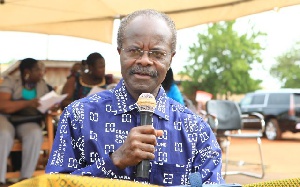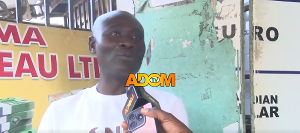Business magnate and Presidential Candidate of the Progressive Peoples Party (PPP), Dr Papa Kwesi Nduom has revealed that he had go through a grueling four hour interview before he was granted a license to own and operate a bank in the United States of America.
According to him, his entire family was equally scrutinized in an interview by the US authorities before he was cleared to start his banking operations.
The Chairman of Groupe Nduom, recently acquired the Illinois-Service Federal Savings Bank (ISF Bank) founded in Chicago in 1934 following the regulatory approval by the US Office of the Comptroller of the Currency.
The Board of Directors of ISF Bank last year approved the adoption of a Plan of Voluntary Supervisory Conversion and Stock Purchase Agreement with Dr. Papa Kwesi Nduom and Nduom family members, pursuant to which the Bank converted from the mutual form of ownership to the stock form of ownership and issued newly authorized shares of its common stock to the investors in a recapitalization transaction.
The conversion and recapitalization was a crucial step in the turnaround of the Bank, which experienced difficulties during the economic downturn of 2008, which was especially devastating for African-American communities and the banks that serve them.
Speaking to Bola Ray on Starr Chat on Starr FM, Dr Papa Kwesi Nduom who also owns the GN Bank in Ghana, stated that his ambition is to make the ISF Bank a billion dollar bank in five years.
“If you can get a banking license in the US, they go through everything that you have been, your person…in my case my entire family. I went through a four hour interview, taxes in the US in Ghana all the regulatory people we’ve dealt with in the world, all the companies we’ve worked it and it is important to us that we gain that validation because once you get license in US, and this means that we can be anywhere in the US and do business.
“We believe that within five years this will be a billion dollar bank, the history that needs to be made is the success and make the bank serve the interest of the general African American, black communities.”
Business News of Wednesday, 3 August 2016
Source: starrfmonline.com

















